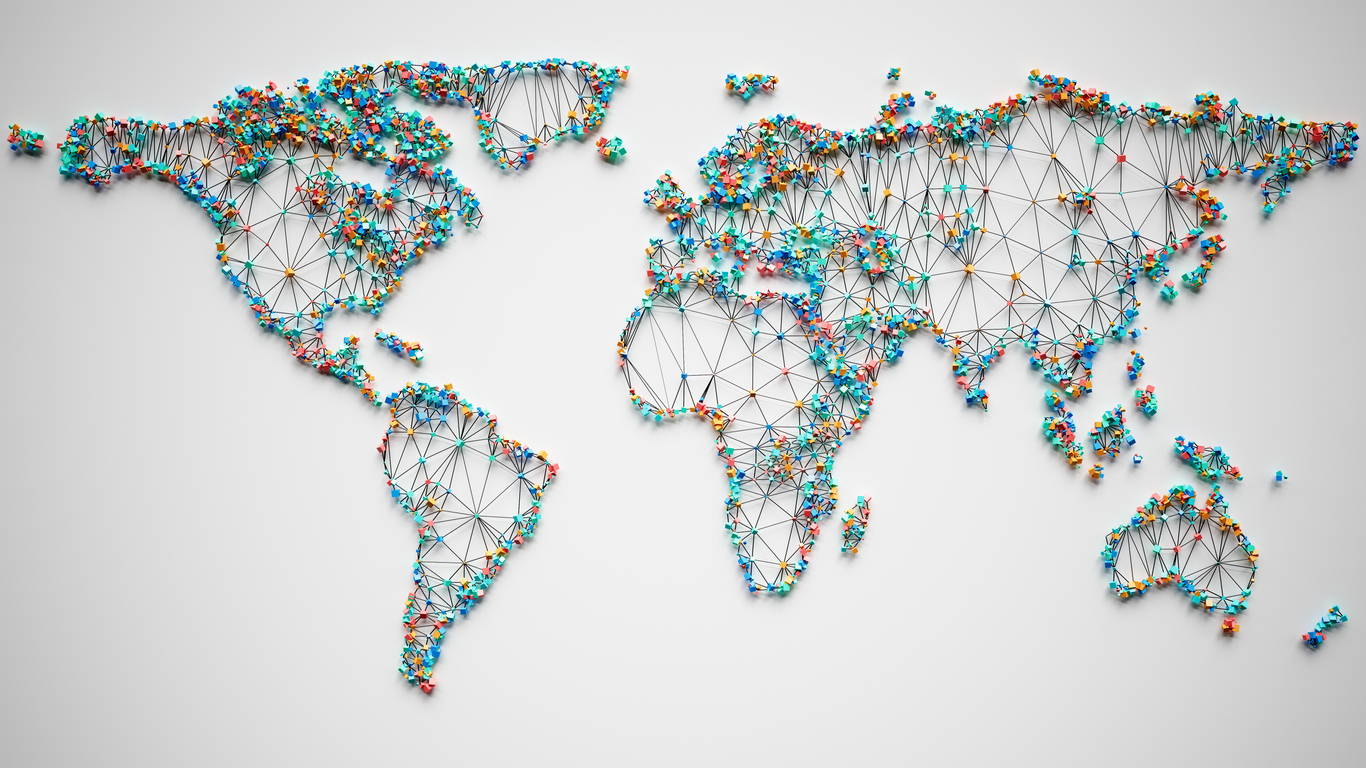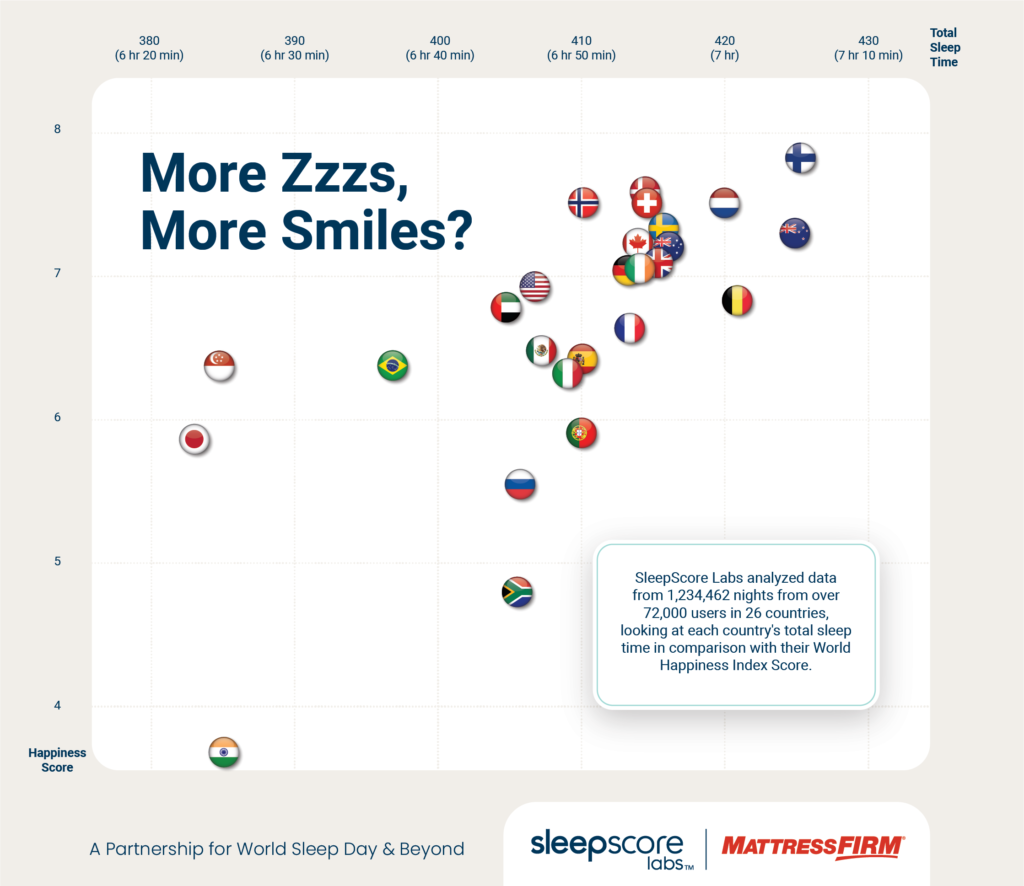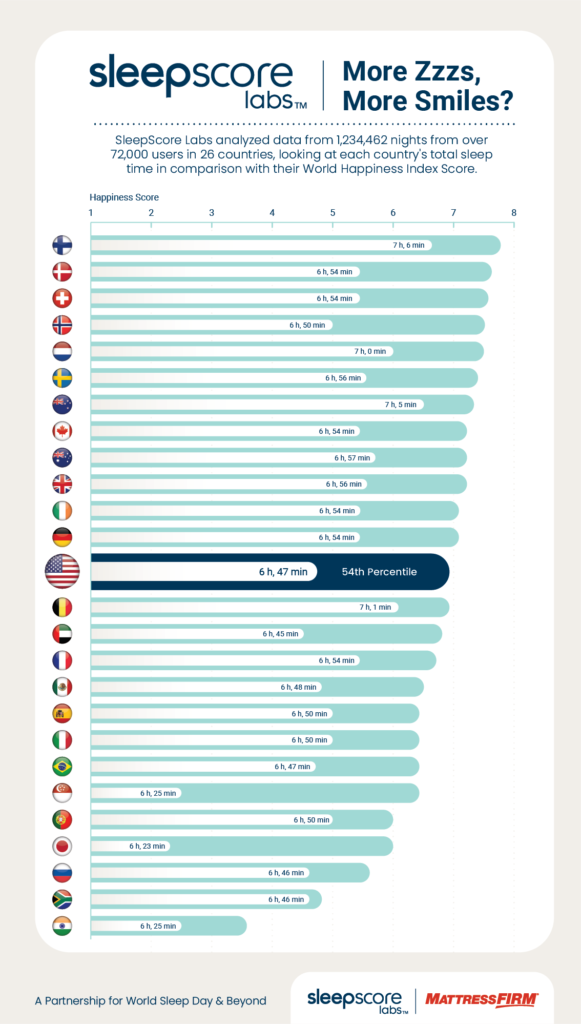World Sleep Day 2021 Data Analysis: More Zzzs, More Smiles?

In honor of World Sleep Month, SleepScore Labs performed a data analysis to compare various country’s total average sleep time with their World Happiness Index Score. The SleepScore team looked at data from 1,234,462 nights, from over 72,000 users in 26 countries.
SleepScore Labs looked at the World Happiness Index from 2020 which consolidates a number of factors into a single metric that represents the overall happiness of a nation.
As mood and sleep are often closely related, our theory was that those countries with the most sleep time would have higher Happiness Scores. When we’re well-rested, we’re often more relaxed, calm, and generally happier.
Who’s sleeping well and who’s happiest?
Our findings align with this thought and provide a new perspective on how impactful sleep might be when it comes to our happiness levels.
- At the top of the list, Finland gets 425 minutes (7 hours, 5 minutes) of sleep on average each night, and they have the highest Happiness Score of the countries we analyzed, a 7.8 (out of 10).
- On the low end, Japan gets 383 minutes (6 hours, 23 minutes) of sleep on average each night, with one of the lowest Happiness Score of 5.9.
- India has the lowest Happiness Score of just 4.0, and they also get lower than recommended total sleep time, 385 minutes (6 hours, 25 minutes).
- Not far from Japan, Singapore gets just 384 minutes (6 hours, 24 minutes) of sleep on average each night, with one of the lower Happiness Scores of 6.3.
- The US gets 407 minutes (6 hours, 47 minutes) of sleep on average each night, with a Happiness Score of 6.9.
- The US definitely has some room for improvement here, as experts recommend getting between 7-9 hours of sleep each night.

Luke Gahan, SleepScore’s data scientist and a member of Mattress Firm’s Sleep Advisory Board, explains the significance around an analysis of this kind.
“For this analysis, we can see clearly that users tracking sleep in countries that rank higher on the Happiness Index, and hence are considered happier people, spend more time in bed and sleep longer, as compared to users in countries that are lower ranked on the Happiness Index ranking,” he explains.
“It’s particularly exciting because while the relationship between self-reported sleep-quality and wellness has been well established in previous research, this research shows, for the first time, that there’s a tangible relationship between happiness, as quantified by the World Happiness Index, and objectively measured sleep, recorded by SleepScore sleep tracking technology,” noted Gahan.
